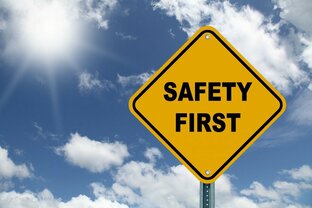 Gen Z (b. 1996-2012) is being raised and educated in a culture of fear. This is the result of many factors. We live in a post-9/11 world, marked by ongoing wars and terrorism, an economic recession, and 24/7 coverage of global, domestic, and personal tensions, trauma, and anger streaming into our lives via our smartphones. Many adults have succumbed to the perspective that the world is an uncertain, dangerous, and scary place. As a result, we work diligently to protect the young people in our lives. We monitor them via video feed throughout their infancy and track them by GPS when they get older. We feed them organic food, buckle them into every seat they sit on, give them helmets and knee pads, and keep them in safe, enclosed spaces. We discourage them from doing anything dangerous or risky, citing the great harm that could befall them. They listen as we talk to one another in frightened or angry tones about what is happening in the world or with our neighbors. They see what we post on social media. They get the message repeatedly that the world is a scary and unsafe place. In a world perceived as dangerous and uncertain, safety has become the priority. This has had some positive results. Jean Twenge reports in her book, iGen: Why Today’s Super-Connected Kids Are Growing Up Less Rebellious, More Tolerant, Less Happy—And Completely Unprepared for Adulthood, that there are several positive indicators of increased physical safety for kids and teens today. Homicide rates, sexual assault and rape, and alcohol consumption have all been on the decline. However, there are some other troubling statistics emerging. Depression, anxiety, and suicide among young people are on the rise. In fact, some experts believe that Gen Z is on the verge of a mental health crisis. Twenge explains how we have not only focused on physical safety for young people today, but also on emotional safety. We have taught them to be tolerant and that they should never be made to feel uncomfortable emotionally. As a result, many do not know how to handle criticism, conflict, or even conversation about tough issues in a healthy and constructive manner. Instead, many young people see words and social interactions as potentially dangerous and harmful. The emphasis on physical and emotional safety is promoting an aversion to any kind of risk or danger. We neglect to teach and model that it is in failing and experiencing pain that we realize how strong and resilient we are. Healthy conflict, disagreement, and dialogue are where we learn new things, gain diverse insights, and deepen our understanding of ourselves, others, and important issues. It is only through getting hurt that we can ever truly learn the beauty and power of forgiveness and healing. So, while safety is important, it can also be dangerous. Too much safety can strip young people (and the rest of us!) of desperately needed confidence, resilience, perspective, and hope. So, how can we encourage young people in our lives to avoid the inherent risks of too much safety?
1 Comment
Fred Berkheimer
5/2/2019 06:56:36 am
Jolene,
Reply
Leave a Reply. |
AuthorDr. Jolene Erlacher is a wife, mommy, author, speaker, college instructor and coffee drinker who is passionate about empowering the next generation of leaders for effective service! Archives
May 2024
Categories
All
|

 RSS Feed
RSS Feed